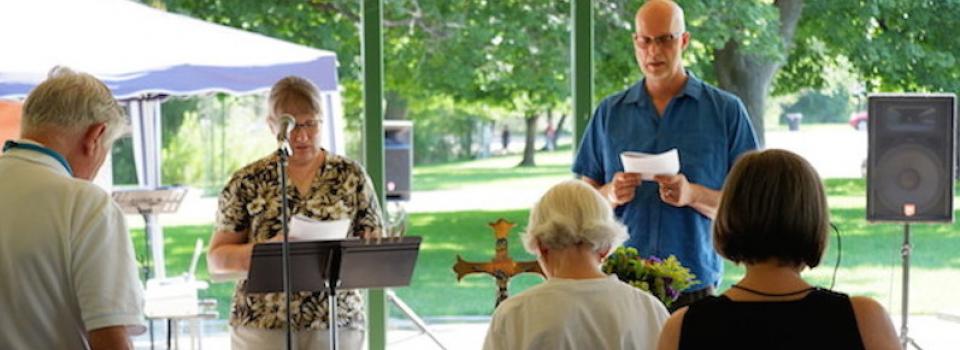Pastoral Ponderings-March-2019
Pastoral ponderings . . .
In the gospels we hear that every healing Jesus ever did was free of charge. Jesus was all about healing people, and bringing good news to the poor; and in his cross, he healed humanity’s relationship with God. Poverty and healthcare for all were his biggest issues. He was linking the two wherever he went. Jesus was addressing the massive poverty he was witnessing in the countryside, by doing free healing everywhere he went, because who can work when they’re chronically sick?
I think Jesus taught that healthcare for all people has to come first; and that public health is the cornerstone of prosperity in society: “blessed are the poor, for their’s is the kingdom of God.” This message clearly spoke to the apostle Luke, who recorded more healings than any other gospel writer. I think physicians like Luke, awakened to the need for social change, can be powerful witnesses to the good news of God’s priority for the poor. I saw that in the efforts of Dr. Raymond Ward, the Republican representative for District 19 in Bountiful who sponsored a House Bill that would have provided full expansion for healthcare in Utah as described by Proposition 3. Dr. Ward received his MD from the University of Washington, and is a member of the American Academy of Family Physicians; the Utah Medical Association; the Davis County Medical Society; and the Utah Academy of Family Physicians. The blessings of God in Christ Jesus are always, first and foremost, for the poor. How that blessing is lived out, is the mission of the followers of Christ.
The number of working poor, those one paycheck from evictions and collections, is just staggering in the US: 7 million working-poor Americans are 3 months behind in their car payments. 130 million Americans can’t cover an emergency expense of $400. Wellness visits, regular check-ups, and dental care continue to be seen as luxuries to the working poor. And without access to affordable, comprehensive healthcare, poverty continues to flourish just as it did in Jesus’s time. We see example after example in the gospels, of Jesus linking healthcare and poverty, and that’s why I think healthcare for all is a Christian issue. When you’re sick and getting sicker, and your car doesn’t run or is repossessed, and you know you can’t get someone else to cover your shift at work, a person’s sense self-worth just goes into the dumpster. Where’s the hope? Jesus and his followers are bringing that hope in the Way of his Cross. I think Jesus’ life and teachings are describe what Lutheran theologians call “the Way of the Cross”: the way of God becoming human in Christ in order to be united with our suffering, so that our suffering will be overcome. The way of the cross that becomes our way of following Jesus in service to our neighbor: seeing our neighbor’s suffering as the wounds of Christ himself, and entering that suffering with the faith of the resurrection to be the blessing Christ Jesus says we are.
The way of the cross is the way of servanthood and advocacy for the poor. It’s why we go up to the Capitol on red air quality days; because the under-employed and working poor are too busy to get there themselves; because families are barely surviving on minimum wage, and have no time to spare such efforts. This is the way of the cross: going to the place where God’s presence through God’s people intersects with human suffering, to be the blessing Jesus says we are.
Our pop culture would tell us that avoiding human suffering is the way to happiness; going out of our way to avoid seeing it, or being touched by it - the gated community - is the goal. But Jesus’ life and teachings describe the Way of the Cross: the way that would be our way of following Jesus in service to our neighbor; seeing our neighbor’s suffering as the wounds of Christ; and entering that suffering as he did, to be the good news of God’s resurrecting power. We don't need tattoos, piercings, or dreds to be counter-cultural in Salt Lake City. Just a desire to follow the way of the cross to the place where God’s presence, through us, and human suffering intersect bringing hope, healing, and help in Jesus’ name.
Pr. David


